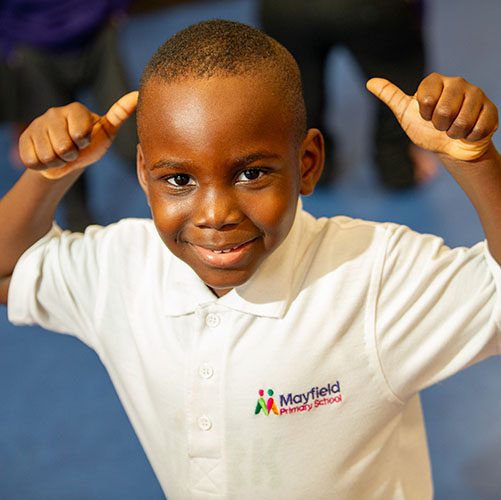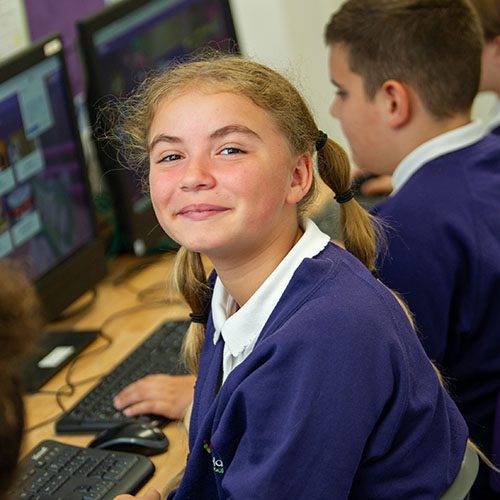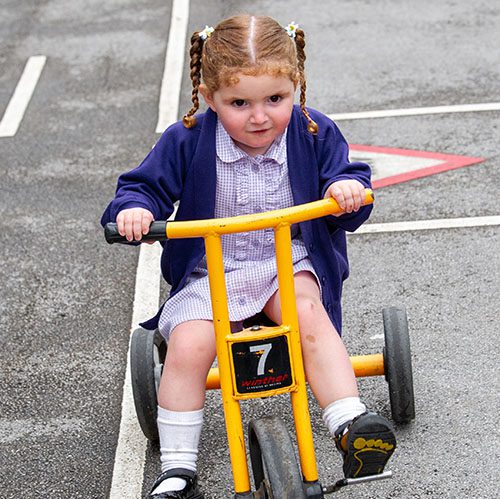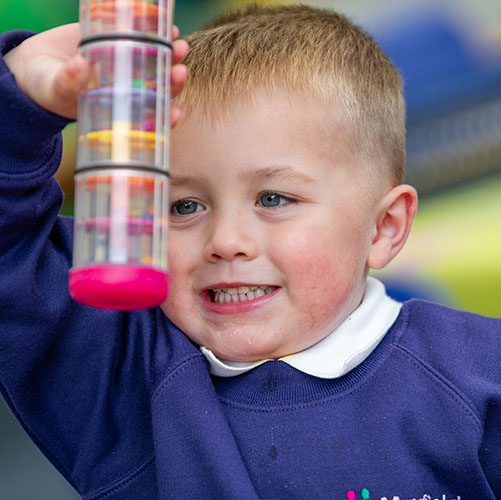History
History is ordering events in time; finding differences and similarities; writing and talking about the past; using different sources for information; asking and answering questions.
Vision for History (Intent)
History is a very important area of learning at Mayfield. We have built our curriculum around the immediate and wider local area to develop children’s knowledge. Topics are informed by the National Curriculum, as well as the context of the local area and are designed to engage the children’s own historical interest and promote individual enquiries. The history curriculum at Mayfield is carefully planned and structured to ensure that current learning is referred to and built upon.
Learning is focused on:
• chronology.
• historical key knowledge across local, national and worldwide significance.
• historical understanding (including cause and consequence);
• similarities and differences.
• continuity and change.
• historical significance.
• historical perspective (including sources of information and their interpretation).
In line with the National Curriculum 2014, Mayfield’s curriculum aims to ensure that all pupils have the opportunity to gain a deep understanding and bank of knowledge of Britain’s past and that of the wider world, which helps to stimulate pupils’ curiosity to know more about history. Children are encouraged to ask perceptive questions whilst thinking critically and weighing evidence. They should also consider arguments, develop perspective and make judgements. Children should begin to understand the complexity of people’s lives, the process of change, the diversity of societies and relationships between different groups, as well as their own identity and the challenges of their time.

History Subject Leader- Mrs Sutcliffe
Long Term Plan
|
|
Long Term Plan
|
Key Vocabulary
|
|
History Vocabulary
|
National Curriculum Aims
The National Curriculum for History aims to ensure that all pupils:
- know and understand the history of these islands as a coherent, chronological narrative, from the earliest times to the present day: how people’s lives have shaped this nation and how Britain has influenced and been influenced by the wider world
- know and understand significant aspects of the history of the wider world: the nature of ancient civilisations; the expansion and dissolution of empires; characteristic features of past non-European societies; achievements and follies of mankind gain and deploy a historically grounded understanding of abstract terms such as ‘empire’, ‘civilisation’, ‘parliament’ and ‘peasantry’
- understand historical concepts such as continuity and change, cause and consequence, similarity, difference and significance, and use them to make connections, draw contrasts, analyse trends, frame historically-valid questions and create their own structured accounts, including written narratives and analyses
- understand the methods of historical enquiry, including how evidence is used rigorously to make historical claims, and discern how and why contrasting arguments and interpretations of the past have been constructed
- gain historical perspective by placing their growing knowledge into different contexts, understanding the connections between local, regional, national and international history; between cultural, economic, military, political, religious and social history; and between short- and long-term timescales.

How is History taught and what does it look like at Mayfield? (Implementation)
History is taught in blocks throughout the year, so that children achieve depth in their learning. Teachers have identified the key knowledge and skills of each topic. By the end of Year 6, children will have a chronological understanding of British and worldwide history from the Stone Age to the present day covering major civilisations including, Ancient Egyptians, Ancient Greeks, Romans, the Shang Dynasty, Saxons, and Tudors.
The Early Years Foundation Stage (EYFS) follows the ‘Development Matters in the EYFS’ guidance which aims for all children in reception to have an ‘Understanding of the World; people and communities, the world and technology’ by the end of the academic year.
Throughout the rest of the school, children can establish clear narratives across time periods studied. They can draw comparisons and make connections between different time periods and others, as well as their own lives. Children will understand that sources of evidence can vary in quality and perspective and must be carefully selected and evaluated.
Children will develop appropriate historical terms and language along with their growing knowledge. Cross curricular outcomes in history are specifically planned for, with strong links between the history curriculum and English lessons enabling further contextual learning.
The local area is also fully utilised to fully embed children’s understanding of Oldham’s part within British and worldwide history, with links to the cotton trade, the golden triangle and industrial revolution, as well our Roman and Celtic connections and influences. Opportunities for learning outside the classroom embedded in practice as well as excursions to local historical sites of interest, including Portland Basin, DEVA Roman Discovery Centre, Manchester Museum, Castleshaw and Quarry Bank, Styal Mill.
Planning is informed by and aligned with the national curriculum. Outcomes of work are regularly monitored to ensure that they reflect an understanding of the key identified knowledge and vocabulary.
What will my child leave Mayfield knowing, understanding and appreciating in History? (Impact)
Knowledge and Understanding books will demonstrate evidence of a broad and balanced history curriculum and demonstrate the children’s understanding of identified key knowledge and vocabulary.
Children leave Mayfield with an understanding and an appreciation of the history and importance of their local area, both within British and World Histories. Children are able to investigate historical theories and use their own investigative and archaeological skills to identify appropriate and trustworthy evidence amongst a wide range of evidence types.
Children are able to develop their own theories and ideas using evidence based arguments to deepen them further and have a grasp and understanding of historical tools and resources they can use to build their theories into reasoned arguments.
Children also have a great knowledge of chronology and how the past fits together and develops towards the modern day, the advent of different technologies and how that pushed society and the world into different ages and where different time periods sit together to form a detailed mental picture of British and World histories.

History Pupil Voice – What do our children think of History at Mayfield? (Impact)
“History is exciting because we get to learn different things about what places used to be like.”
“We have learnt about old things, like toys and what they were like in the past.”
“We went to the Portland Basin Museum to learn about the past”
“History is when we learn about the past.”
“We learnt about how mills have changed, it was really fun.”



Mayfield Primary School is proud to be part of the Cranmer Education Trust
Cranmer Education Trust is a company limited by guarantee and an exempt charity registered in England. Company registration number: 07687709. Registered Office: Cranmer Education Trust, c/o The Blue Coat School, Egerton Street, Oldham OL1 3SQ. The website address is www.cranmereducationtrust.com and the phone number 0161 785 5082.



